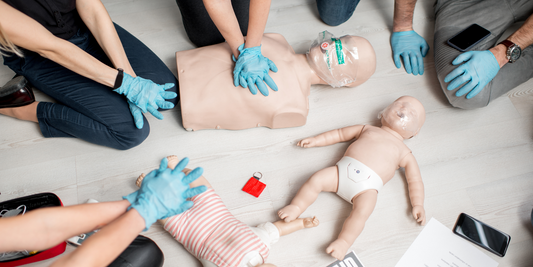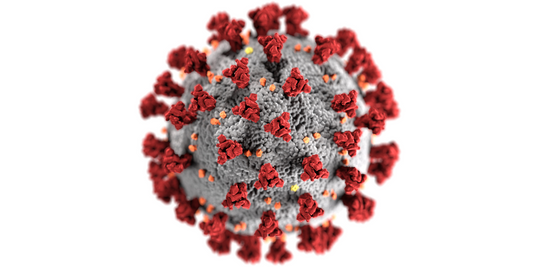
But don't forget to be lost: everything you need to know about Alzheimer's.
In view of the World Alzheimer Tag, this article should provide comprehensive information about this form of dementia. What are early signs of Alzheimer's disease and how can relatives correctly deal with the diagnosis? The World Alzheimer's Day is intended to provide information and to take the topic to the public. Alzheimer's dementia is one of the most common dementia and is increasing significantly due to demographic change in the next few years. In 2023, around 1.8 million people affected by dementia lived in Germany. According to current estimates, this number should increase by almost one million in 2025. It is all the more important to know the most common causes of dementia and early license plates of the disease. In this article you will learn everything about the disease and what you can do as a relative to improve the quality of life of the sick.
What is Alzheimer's dementia?
Alzheimer's dementia is the most common dementia form. Alzheimer's dementia arises when nerve cells gradually die in the brain. So far it is known that protein deposits called Plaques in the Hippocampus in Alzheimer's patients. As a result, nerve cells die and there are more and more cognitive restrictions. In addition, another protein called Tau protein in the brain is suspected, which has been changed in such a way that it can no longer fulfill the nutrient supply and stability of the brain cells. Dementia has an increasingly deteriorating memory, language disorders, problems in planning behavior and concentration and attention disorders. Alzheimer's dementia is not curable. However, there is drug and non -drug methods to positively influence dementia. Special antibody medication should remove the plaques just mentioned and thus delay the progression of the disease. You cannot stop the process of research today. Risk factors - i.e. conditions that increase the likelihood of a disease - are diabetes, depression, high blood pressure, smoking and strong alcohol consumption, obesity, little social contacts, hearing loss and low education. All of these things mentioned are not primary triggers of Alzheimer's disease, they only increase the risk of developing Alzheimer's. There are also some protective factors, i.e. influencing the probability of developing Alzheimer's. These are good training, good physical and mental activity, a good social environment and a balanced diet as well as low alcohol consumption. Alzheimer's diagnosis and the symptoms associated with the associated can be scary and lead to great uncertainty, which is why it is all the more important to have a stable network around them and to get to the person concerned lovingly and tolerant.

Symptoms of Alzheimer's dementia
Dementia is always associated with increased forgetfulness. But behind the disease there is much more than just forgetfulness. The course of the disease can sometimes look different in every person, but it is the same.
- memory: With the progress of the disease, the memory performance decreases. This affects short -term memory and later the long -term memory. Problems in the short -term memory are expressed by the fact that those affected can no longer remember recently discussed content, such as shopping lists or the information of a text that has just been read. Deficits in the long -term memory express themselves by no longer remembering events from their own lives such as weddings or big birthday parties.
- Language: Initially, Alzheimer's dementia can be noticeable in the language by no longer coming to the person or they can no longer finish their sentence. This is often accompanied by the fact that you lose the thread and that a long conversation is no longer possible.
- Change in essence: In the course of the disease, there may be profound changes in personality. This change can be completely in contrast to the personality in healthy condition. People can show increasingly more aggressiveness, for example if they are frustrated or are afraid. Other people become very reserved and hardly speak anymore. They withdraw and lose any interest in activities that they used to have fun. In addition, a pronounced anxiety and a certain distrust can develop. Affected people feel threatened and show paranoid trains.
The four stadiums of Alzheimer's dementia
1. Light cognitive disorder (Mild cognitive impairment)
In this phase there are slight cognitive restrictions, which are usually not perceived by those affected but can be observed by outsiders. However, it can be grasped by a diagnostic test. Affected people at this stage are not yet dependent on help, they can still master their everyday life alone. In summary, this first phase is characterized by the fact that there are slight cognitive restrictions, but only minimally affect those affected in his everyday life.
2. Early stage of Alzheimer's dementia
The first deficits of short -term memory occur in this stadium. Information that has recently been communicated to you, be it in conversations or by phone, can no longer be remembered. Affected people at this stage have problems following discussions. They also show problems in finding the word and often lose thread in conversations. The first problems arise with spatial and temporal orientation. For example, those affected miss appointments or can no longer find their parked car. Most of them can still cope with everyday life, and tasks in the household can usually be mastered. However, you need support for more complex tasks. In this stadium, those affected slowly notice that something is wrong and try to hide their deficits as well as possible. Humor is often used to distract from memory deficits or orientation problems. Some people also withdraw, that is, they hide from the outside world to cover up their restrictions. New and unusual situations are avoided that are potentially not feasible for those affected. In this stage, people at this stage are becoming increasingly unsure and withdraw from the outside world. The nature of the person itself begins to change. Anyone who was once very open and hungry for experience can now appear very reserved and anxious. There can also be an increased irritability if things do not run the way the people would like it or if they realize what they can no longer do alone. Depression can also arise. The mood is pressed and activities or hobbies that used to have friends have no longer fun for the person and they can almost not be motivated. Body hygiene and the household are neglected. Social contacts are less and less cared for and the people are isolating themselves in their apartment.
3. Middle stage of Alzheimer's dementia
The disease is now clearly noticeable in this phase. There are now not only deficits in short -term memory, but also long -term memory. Memories of the declarative long -term memory are affected, more precisely the episodic memory. This is responsible for saving important life events such as marriage, children and other drastic events in life. People in the middle stage have problems remembering these important phases of life. It is difficult for them to remember how many children they have, as well as what their names are and how old they are. Early memories of childhood can occur randomly and it can happen that those affected think that they are currently in the remembered phase of life. For example, the person can be overwhelmed that they are a child and urgently need to go home to their mother. The spatial orientation is increasingly deteriorating. People may have problems finding their house number or, in the worst case, they no longer know their own four walls. Things are laid and appointments are always laid. People are more difficult to recognize and those affected are becoming more and more insecure in their actions, since it can now be clearly seen that they have deficits and also notice it in themselves. The personality is now changing much more with the progress of the disease. The direction of the change of nature vary from person to person. Some become more aggressive, some become very shy and hardly communicate anymore. This can be extremely stressful for relatives, since its relative changes more and more and the new personality can be exhausting and unusual. In addition to changing the personality, people in the middle stage feel severe unrest and nervousness. This is expressed in an increased urge to move. Means that those affected run around restlessly without a clear goal. This behavior can also lead to people trying to escape from the apartment or home. Due to the increasingly decreasing sense of time, the sleep-wake rhythm can be disturbed, which means that people run around at night and not believe that they have to go to sleep and then lie down in bed during the day. In summary, people in the middle learning stage of Alzheimer's dementia are increasingly dependent on help, since they can no longer master their everyday life alone.
4. Late Alzheimer Stadium
In the final stages of the Alzheimer's illness, the health of the affected person is increasingly deteriorating. You are now very susceptible to infect with other diseases. The lack of movement and nutrition as well as a old age can help to make general immune defense weaker. This makes them extremely susceptible to infections. This phase is characterized by difficulties in eating, swallowing and drinking, a pronounced physical weakness, a lot of sleep and little verbal statement. Incontinence can also occur, since the signals from your body, which are well -advanced, can no longer interpret. Dealing with incontinence is required with the required patience and good care. Products like Incontinence inserts and Incontinence pants can help to receive the well -being of the person concerned. In summary, people in the final stage are dependent on care around the clock, as well as very susceptible to infections, which in most cases also represent the cause of death.
Recognize early, act early
Since the individual stages of Alzheimer's dementia are now known, it is important to explain how dementia can be recognized at an early stage and what you can do as a relative in order to influence the course positively and to be able to take appropriate measures in favor of your own health and that of the person concerned . In the early stage it is sometimes difficult to see the signs. Dementia can be congruent from the symptoms like that of depression. In order to be sure of which disease it is, you should pay attention to the following signs and contact a doctor accordingly and make an appointment for diagnosis.
- Memory loss: The first signs of a memory loss are that people no longer remember agreed things, often ask the same questions and move more objects.
- Everyday problems: An early sign of dementia may also be that familiar tasks are more difficult to do or lead to confusion.
- Planning difficulties: The person concerned has increasingly difficulty planning their everyday life.
- confusion: In initial stages, the person may lose orientation and no longer knows which day is or in which place it is.
- Word -finding disorders: Another sign may be that people have problems speaking because some words no longer come up with and they lose their thread during the conversation.
- Social isolation: Due to uncertainty, not being able to do everything alone often withdraws to hide their deficits. It often happens that you no longer feel any fun with activities that you used to like.
- Personality changes: There can be mood swings in the early stages. Affected people become more anxious, irritating and there is a depressive mood.
What can I do as a relative?
As a member of a person with Alzheimer's, there are many ways to maintain well -being and quality of life. Alzheimer's sufferers often feel pronounced uncertainty and are depressed. The effects of Alzheimer's disease cannot be stopped. However, it can be ensured to make the time for those affected as pleasant as possible. Here are some important things that you should definitely consider when dealing with those affected:
- patience: The most important thing is to raise patience and understanding. Since people can be very anxious or suspicious, it is important to take time and be patient with them.
- Routine and security: It is important to create a routine daily routine to avoid stress and create security. A structured daily planning helps. It can also help to hang up a plan, with the help of which you can always see what is the next time. A barrier -free environment should also be created to minimize the risk of injury.
- communication: The right type of communication is the key here. Be patient if the person has difficulty expressing themselves in conversations or occasionally repeating themselves. It is important that you convey the feeling that the person is heard by you. Also pay attention to non -verbal characteristics and reaffirm what has been said with a smile or nod to convey security and appreciation. Avoid using complicated words or long sentences as this can quickly lead to confusion. Also avoid complex question and let the person answer time.
- Nutrition and health: Make sure that meals are taken regularly and that they are healthy and balanced. People with Alzheimer's often forget to drink, which can quickly lead to dehydration. It is also positive for health to regularly take on activities and maintain social contacts.
- Find professional support: The further the disease progresses, the more help affected people. As a relative with a job and their own family, the maintenance of a dementia patient is unreasonable, which is why it is important to find help in good time either in the form of a domestic nursing service or a care facility. Find out and select the best option for yourself and your relatives. It is important that you do not neglect your own health. The Alzheimer illness not only harbors physical and emotional stress for those affected, the situation is also stressful for relatives. There are various offers for relatives and family members, for example in the form of self -help groups.
Conclusion
An Alzheimer diagnosis presents everyone involved with new challenges. With the knowledge and understanding of the disease, you can significantly improve the quality of life of the person concerned. So far, science has not yet found any opportunities to heal a dementia, but numerous studies on this complex illness have been running. It is important to continue training, show understanding and empathy and to build a support network. Early detection is of central importance, because this can slow the diagnosis and therapy and significantly improve the quality of life. Such a diagnosis can also be extreme for relatives. It is important to use support networks and pay attention to your own health. It remains a medical and social task to convey knowledge, build up and find new ways, to improve the life and quality of Alzheimer's patients.




























